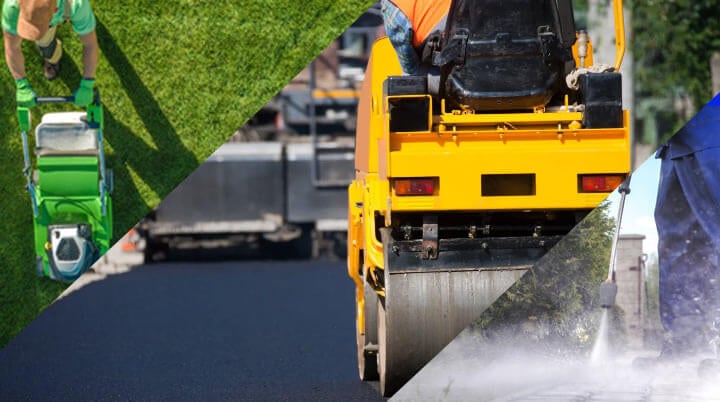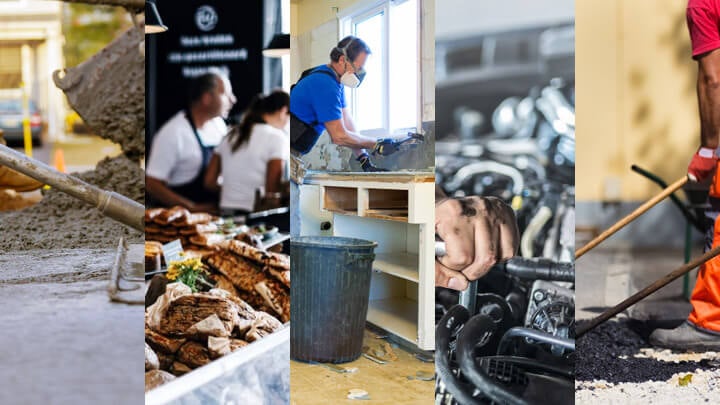- Learn how to use an asphalt hot box properly with this comprehensive guide.
- Discover the pros and cons of renting or buying this essential asphalt maintenance equipment.
- Learn about the cost and environmental considerations when choosing to purchase or rent asphalt hot boxes.
In the dynamic world of construction and maintenance, tools and equipment evolve, but some innovations become industry mainstays due to their undeniable utility.
Enter the asphalt hot box. This essential piece of equipment is more than just a heated container; it's a linchpin in ensuring the quality and longevity of pothole repairs.
An asphalt hot box is designed to maintain the temperature of hot mix asphalt, allowing workers to transport it from the asphalt plant to the job site without losing its optimal workable state.
This is crucial because once asphalt begins to cool, it hardens and becomes challenging to work with, which can compromise the quality of a repair or new pavement.
By keeping the asphalt at the right temperature, hot boxes ensure that the material remains pliable and adhesive, resulting in seamless patching and longer-lasting repairs.
Whether you're patching potholes, resurfacing roads, or laying down new pavements, the asphalt hot box is an invaluable ally, ensuring that your asphalt is always ready to roll, quite literally.
Now, as you dive deeper into this guide, you'll encounter a pressing question faced by many professionals: Is it better to rent an asphalt hot box or own one of these indispensable tools? Stay with us as we explore the pros and cons, helping you make an informed decision tailored to your needs.
Table of Contents
- Using an Asphalt Hot Box
- Advantages and Disadvantages of Renting Hot Box for Asphalt
- Advantages and Disadvantages of Purchasing Your Own Asphalt Hot Box
- Is it Better to Rent or Own a Hot Box?
- Cost Analysis
- Asphalt Hot Box Suitability for Different Projects
- Environmental Considerations
- Frequently Asked Questions
How to Use an Asphalt Hot Box
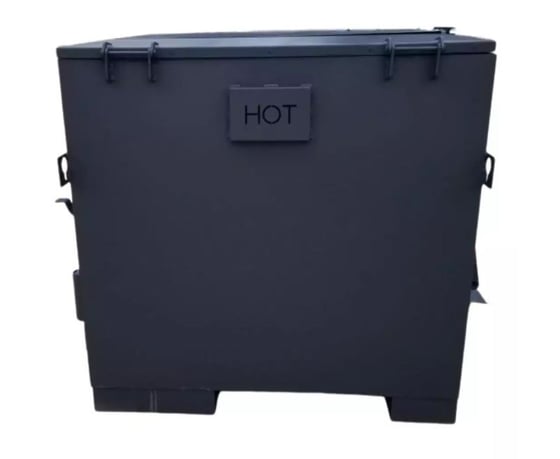 The Asphalt Kingdom AK4000 2-Ton Asphalt Hot Box
The Asphalt Kingdom AK4000 2-Ton Asphalt Hot Box
When it comes to ensuring seamless asphalt repair and maintenance, knowing how to effectively and safely operate an asphalt hot box is paramount.
Not only will this knowledge ensure the longevity of your repairs, but it also guarantees the safety of your crew.
Here's a step-by-step guide to help you navigate this essential equipment.
Using an Asphalt Hot Box: A Step-by-Step Guide
☑️ Inspect the equipment. Before use, always conduct a thorough inspection of the hot box. Check for any signs of wear, damage, or malfunction. Ensure that the heating system, doors, and latches are working correctly.
☑️ Set the desired temperature. Different asphalt mixes may require various temperatures. Refer to the asphalt mix specifications and set the hot box to the recommended temperature. Modern hot boxes often have digital controls for precision.
☑️ Load the asphalt. Once you've ensured the hot box is ready, load the asphalt mix. Ensure even distribution to allow uniform heating. Remember not to overload and always follow the manufacturer's weight guidelines.
☑️ Monitor the heating process. Keep a close eye on the heating process. Regularly check the asphalt’s temperature using a temperature gauge or infrared thermometer.
☑️ Transport the hot box with care. Once heated, the hot box can be transported to the job site. Ensure that it remains closed to prevent heat loss, and always follow safety guidelines when moving and positioning the hot box.
☑️ Unload the asphalt properly. Use shovels or automated systems to unload the hot mix asphalt. Ensure crew members wear protective gear, including heat-resistant gloves, to avoid burns.
☑️ Clean the hot box after use. Once the day’s work is done, ensure the hot box is empty and clean any residue. Proper cleaning prolongs the equipment's lifespan and ensures optimal performance during the next use.
Related: What is Bitumen: From Its Origins to Refined Asphalt Binder
Heating Times for Different Hot Boxes
The time it takes to heat the asphalt mix can vary based on the hot box type and the volume of the material.
Smaller models. Typically, it takes about 30-45 minutes to heat a full load to the desired temperature.
Trailer models. Larger trailer models can take anywhere from 45 minutes to 1.5 hours, depending on the load volume and initial asphalt temperature.
Truck-mounted models. With powerful heating systems, these usually require 30-60 minutes for a full load, varying with the model's capacity.
Electric hot boxes. These can take a bit longer, ranging from 1 to 2 hours, due to the nature of electric heating compared to propane or diesel heaters.
Remember, these are average times, and actual heating durations can vary based on specific models, weather conditions, and asphalt mix types. Always refer to the manufacturer's guide for precise information.
Operating an asphalt hot box proficiently is an art backed by science. With these guidelines, you're well-equipped to ensure smooth operations and top-tier asphalt repairs.
Safe and efficient work, after all, lays the foundation for roads that stand the test of time.
Pros and Cons of Renting Asphalt Hot Boxes
Choosing whether to rent or own an asphalt hot box can be a pivotal decision for your asphalt maintenance company. Renting offers a unique set of benefits and limitations that cater to specific project needs.
Let's dive into the advantages and pitfalls of this choice.
Pros of Renting an Asphalt Hot Box
Budget-friendly for short-term needs. Renting sidesteps the large upfront costs of purchasing. For one-off or infrequent projects, it’s a wallet-conscious decision that provides access to high-quality equipment without the long-term commitment.
Dynamic selection. The world of asphalt hot boxes is vast and varied. Renting gives contractors like you the flexibility to pick a model best suited for each job, from compact units for smaller repairs to larger models for extensive roadwork.
Freedom from maintenance. Forget about regular maintenance checks or the panic of sudden breakdowns. With rentals, the upkeep responsibility rests with the rental company, ensuring you always have a machine in tip-top shape.
The latest tech in hand. Rental companies frequently refresh their inventory to keep up with industry advancements.
You get the chance to use the latest models with cutting-edge features, all without the need to constantly invest in new equipment.
Cons of Renting an Asphalt Hot Box
Cumulative costs. While renting can be cost-effective for short stints, regular and prolonged rentals can see those fees add up. Over time, the cumulative rental costs might exceed the price of outright ownership.
Availability issues. Peak seasons can create a high demand for specific hot box models. There's always a risk of your preferred model being unavailable, which can disrupt your pothole patching and asphalt maintenance project timelines.
Adjustment periods. The variety in rental options can sometimes mean getting a different model for each job. This can pose a challenge for your crew, requiring adjustments and potentially slowing down operations.
Potential for wear. Rentals see multiple users and varying degrees of care. Even though companies assure functionality, a previously heavily used hot box might not offer the same performance as a brand-new one.
Related: What is Asphalt Emulsion? Understanding and Using this Asphalt Sealing Material
Pros and Cons of Buying Asphalt Hot Boxes
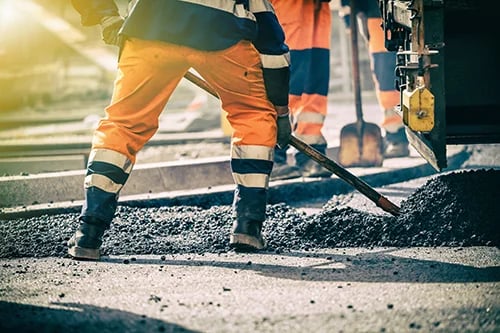
Owning an asphalt hot box is a significant investment, and like all major decisions in the asphalt maintenance realm, it comes with its unique set of rewards and challenges.
Here, we delve into the advantages and caveats of taking the ownership route.
Pros of Buying an Asphalt Hot Box
Long-term cost savings. The initial price tag of purchasing a hot box for asphalt may be hefty. But when spread over several projects and years, the cost per use becomes minimal, especially compared to repeated rental fees.
Immediate availability. Owning means the hot box is at your disposal whenever a project arises. There's no need to coordinate with rental companies or risk unavailability during peak times.
Customization and familiarity. When you own the equipment, you can tailor it to specific needs or preferences. Moreover, crews become familiar with the same equipment, increasing efficiency and decreasing the learning curve for each project.
Potential for ROI. If your operations don't require constant use of the hot box, there's an option to rent it out during downtime. You can turn this investment into an additional income stream.
Cons of Buying an Asphalt Hot Box
Maintenance responsibility. Ownership comes with the duty of regular maintenance. This not only includes costs but also the time and expertise to ensure the hot box remains in optimal condition.
Storage needs. A hot box isn't a small piece of equipment. Proper storage is essential to protect it from the elements and prolong its lifespan. This means additional costs and considerations for storage space.
Depreciation and upgrades. Equipment depreciates over time. Additionally, as newer models with advanced features hit the market, your hot box might become outdated. This could necessitate further investment in upgrades or a new purchase.
Initial capital outlay. While it pays off in the long run, the initial cost of purchasing can be a barrier, especially for smaller operations or startups that might not have extensive capital reserves.
Renting vs. Owning: A Detailed Comparison
For an asphalt maintenance contractor, the decision between renting and owning an asphalt hot box is akin to choosing between two different roads — each with its own benefits and challenges.
Understanding the terrain ahead can make the journey smoother and more fruitful. Here's a detailed comparison to guide your choice.
Financial Considerations
Renting: Ideal for those with limited upfront capital. It allows access to top-tier equipment without a hefty initial payment. However, repeated rentals can accumulate costs over time, potentially exceeding the purchase price of a hot box.
Owning: Requires a significant initial investment but promises long-term cost savings. Over several projects, the per-use cost decreases, making it a financially sound choice for contractors with regular asphalt maintenance needs.
Equipment Availability & Flexibility
Renting: Offers the flexibility of choosing different models for various projects. However, peak seasons may pose availability challenges, potentially affecting project timelines.
Owning: Ensures the hot box is always available when needed, eliminating the risk of delays due to unavailability.
However, contractors are limited to the features and capacity of the owned model unless they decide to invest in multiple units.
Maintenance & Storage
Renting: Free contractors from maintenance responsibilities, as upkeep is handled by the rental company. There's also no need to worry about storage.
Owning: Owners need to maintain the equipment. Proper storage is also vital, requiring space and potentially additional expenditure.
Customization & Proficiency
Renting: While it provides diverse equipment options, it might require the crew to adjust to different models and this affects operational efficiency. Customizations or tweaks are also off the table.
Owning: Ownership empowers contractors to modify the equipment as needed. Regular use of the same model leads to operational proficiency, minimizing setup times, and increasing job efficiency.
Future Value & ROI
Renting: There's no resale value or return on investment with rentals. Payments made are purely operational expenses.
Owning: Equipment, over time, can be depreciated for tax purposes. Moreover, if the hot box is in good condition, it can be resold or rented out to other contractors, generating additional revenue.
Related: What is Asphalt Stabilization? Understanding Physical and Chemical Techniques
Cost Analysis: Renting vs. Owning an Asphalt Hot Box
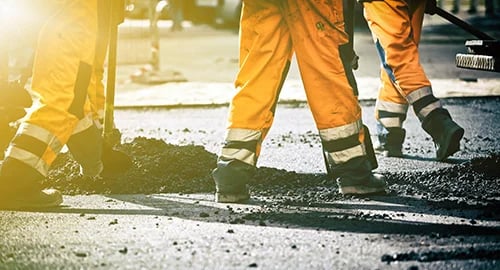
For asphalt maintenance contractors, the decision to rent or buy an asphalt hot box doesn't merely pivot on immediate needs; it's a financial equation.
Let's discuss the monetary factors tied to both paths, ensuring your choice doesn't just resonate with your operational tempo but also your bottom line.
Initial Investment
Renting: The beauty of renting lies in its absence of a hefty initial payment.
Contractors can gain access to top-tier equipment without a significant outlay, making it an attractive option for those with restricted capital or infrequent needs.
Owning: This route demands a considerable upfront cost, which could range from tens to hundreds of thousands of dollars based on the hot box's size and features.
While daunting, this is a one-time expense, spread across the equipment's lifespan.
Rental Fees
Renting: Depending on the hot box model and rental duration, fees can range from $100 to $1,000 per day. For a month-long project, this could accumulate to a significant sum.
Owning: Once the equipment is purchased, there are no daily or monthly fees. The only ongoing costs are related to maintenance, storage, and potential upgrades.
Maintenance and Upkeep Expenses
Renting: One of the significant advantages of renting is that the maintenance burden, both in terms of costs and effort, rests on the rental company.
Contractors are free from routine service expenses and unexpected repair bills.
Owning: The flip side of ownership is the inevitable maintenance costs. Regular servicing, parts replacements, and unexpected repairs can add up.
However, diligent maintenance can extend the equipment's life, making the costs a worthy long-term investment.
Potential ROI & Other Financial Benefits
Renting: While rental fees are operational costs with no return, renting offers flexibility. Contractors can allocate funds to other pressing needs, maintaining liquidity.
Owning: The hot box, over its lifespan, can be a source of ROI in multiple ways:
- Depreciation: Equipment can be depreciated over time, offering tax benefits.
- Resale: Even after years of use, a well-maintained hot box can fetch a decent resale value.
- Renting Out: Periods of inactivity can turn the equipment into a revenue stream by renting it to other contractors.
Suitability for Different Projects
The dynamics of every asphalt project are unique - varying in scale, repetition, and specificity. For asphalt maintenance contractors, aligning equipment decisions with the project is key to success.
Let’s explore how different project parameters might sway the balance between renting and owning an asphalt hot box.
Project Size
Small to Medium Projects. These might be localized repairs or patchwork. For such endeavors, renting could be a smarter choice. The short-term nature and lesser asphalt volume don't justify the high initial expense of buying.
Large-Scale Projects. Think of extensive roadworks or sizable commercial parking lots. Owning a hot box is definitely a prudent decision here.
Given the volume of asphalt needed, the equipment will be in use consistently, making the per-day cost of owning more economical than recurring rentals.
Asphalt Kingdom's AK4000 is highly recommended for these large-scale projects. Watch the video below to meet this game-changing hot asphalt container.
Buying an Asphalt Hot Box? Check out the AK4000!
Project Frequency
Occasional Jobs. For contractors who handle asphalt work sporadically or as a part of a broader service portfolio, renting aligns with their infrequent needs. It’s cost-effective and ensures access to the latest equipment each time.
Regular Engagements. If asphalt maintenance is your bread and butter with jobs lined up back-to-back, ownership is a no-brainer. The repeated costs of renting for frequent projects can quickly surpass the one-time purchase cost.
Specific Project Requirements
Diverse Equipment Needs. Some projects might demand specialized hot boxes, perhaps with unique heating systems or capacities. Renting offers the flexibility to choose a tailored model for each job without committing to a singular type.
Standardized Operations. For contractors whose projects have a consistent blueprint, owning a hot box tailored to their standard requirements ensures uniformity in work quality and operational efficiency.
Related: What is Asphalt Rejuvenation: A Comprehensive Guide
Environmental Considerations
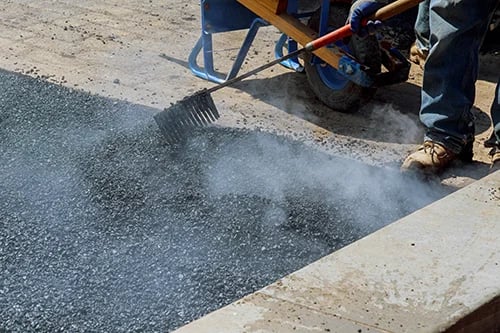
In an era where sustainability isn't just a buzzword but a business imperative, asphalt maintenance contractors are increasingly weighing the environmental impact of their equipment decisions.
How does the choice between renting and owning an asphalt hot box stack up in the green ledger? Let's examine.
Emissions
Renting: Continuously cycling through different rental models might mean sometimes using older, less efficient hot boxes. These may produce more emissions than newer models.
On the flip side, renting newer models can offer access to the latest, eco-friendly technologies without a hefty purchase price.
Owning: Owning a hot box, especially a newer model, means you're in control of its emissions. Regular maintenance and updates can ensure it operates at peak environmental efficiency.
However, if stuck with an older model, you might lag in emission standards.
Transportation
Renting. Each rental necessitates transportation of the hot box to and from the rental facility. Frequent rentals can amount to significant transport emissions, especially if the nearest facility is far away.
Owning. Once purchased, the transportation is limited to job sites, eliminating the back-and-forth to rental facilities. This can significantly reduce the transportation carbon footprint, especially for contractors with frequent projects.
Sustainability
Renting. It promotes the shared economy model, where multiple contractors utilize the same equipment over its lifespan.
This can mean a reduced demand for producing new equipment, leading to fewer resources consumed and a smaller waste footprint.
Owning. Owning offers the opportunity to invest in sustainable models with advanced green technologies.
Contractors can also implement a rigorous maintenance schedule, ensuring the equipment's longevity and reducing the frequency of replacements.
Frequently Asked Questions
1. What is an asphalt hot box and what is its primary purpose?
An asphalt hot box is a specialized piece of equipment designed to keep asphalt at the optimal temperature for workability.
Its primary purpose is to facilitate efficient asphalt repair and patchwork by ensuring the material remains pliable and ready for application.
2. How does an asphalt hot box work?
The hot box uses a heating system, usually either electric or propane-fueled, to maintain or reheat bulk asphalt to the desired temperature.
Insulated walls retain the heat, ensuring even temperature distribution throughout the material.
3. Can I use an asphalt hot box for both residential and commercial projects?
Absolutely! Asphalt hot boxes are versatile and can be used for both residential driveways and large commercial projects, such as parking lots or roadways. The key is selecting the right size and capacity for the job.
4. How long does it take for an asphalt hot box to heat the asphalt to the desired temperature?
The time varies based on the hot box model and the quantity of asphalt. Generally, it can take anywhere from 30 minutes to a few hours. It's crucial to refer to the manufacturer's guidelines for specific timings.
5. What types of asphalt materials can be heated using an asphalt hot box?
Most hot boxes can heat a variety of asphalt materials, including fresh asphalt, reclaimed asphalt pavement (RAP), and cold patch mixes. Always check the manufacturer’s specifications to ensure compatibility.
6. What are the benefits of renting an asphalt hot box?
Renting provides flexibility, eliminates maintenance responsibilities, and is cost-effective for infrequent or diverse project needs. It also ensures access to various models without a substantial initial investment.
7. What are the advantages of owning an asphalt hot box?
Owning ensures immediate equipment availability, allows for equipment customization, and offers long-term cost savings for frequent projects. Plus, there’s potential for ROI through resale or renting out.
8. How do I choose the right size and capacity of an asphalt hot box for my projects?
Consider the scale and frequency of your projects. For small jobs, a compact hot box might suffice. Larger projects or frequent jobs necessitate larger capacities. Consulting with equipment suppliers can also provide insights into the best fit.
9. Are there any safety precautions I should follow when using an asphalt hot box?
Yes, always ensure:
- Proper ventilation to prevent fume buildup.
- Use heat-resistant gloves and protective eyewear.
- Regularly inspect equipment for wear and tear or leaks.
- Adhere to the manufacturer’s safety guidelines and operating instructions.
10. What are the maintenance requirements for an asphalt hot box?
Maintenance includes regular cleaning to prevent asphalt residue buildup, inspecting heating elements for functionality, checking insulation for any wear, and ensuring all controls and gauges are in working order. Always follow the manufacturer's specific maintenance recommendations.
Remember, a well-informed contractor ensures not just efficient operations, but also longevity and safety in every project. Stay updated and stay safe!
Conclusion
There are a lot of benefits to renting a hot box. But if you're patching potholes all year long and you need a trusty unit, then investing in one of your own makes a lot of sense.
If you're looking for asphalt hot boxes for sale, we recommend Asphalt Kingdom's AK4000 2-Ton Hot Box. This container is great for contractors who need high-capacity and quality asphalt storage. And with features like a seamless shovel tray, sliding access door, and superior exhaust ports, you’re guaranteed an uncomplicated, smooth operation every time.
Ready to elevate your asphalt operations? Order yours now from the Asphalt Kingdom store. For more information or personalized inquiries, ring us up at 1-866-399-5562 or drop us a line at sales@asphaltkingdom.com. Transform the way you handle asphalt today!




